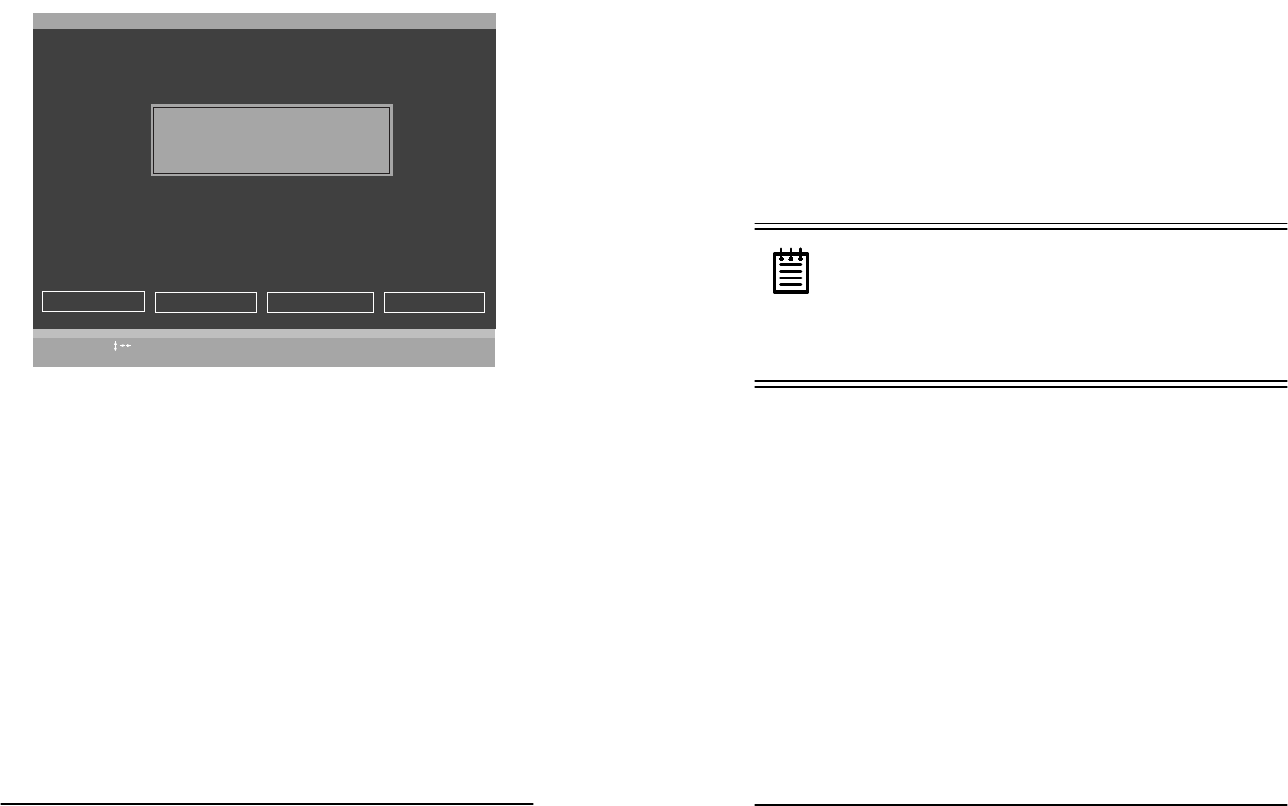
3ware Escalade ATA RAID Controller Installation Guide
32
www.3ware.com
a single disk. RAID 5 arrays require a minimum of three
drives. Configurations consist of at least 3 drives and up to 12
drives.
Figure 10. BIOS Initialization Screen for RAID 5
Select striping size
For a RAID 0 or RAID 10 configuration select the striping size.
Sizes of 64K, 128K, 256K, 512K or 1M are selected using the
Stripe Size box shown in Figure 8. RAID 5 only allows a 64K
stripe size. RAID 1 does not allow the user to select the striping
size.
Select write cache properties
The Escalade ATA RAID Controller gives you a choice of disabling
the write cache for your disk arrays. Write cache is used to store
data locally on the drive before it is written to the disk, allowing the
computer to continue with its next task. Enabling the write cache
Restore Initial Values
Previous/Next
Toggle Hot Spare
Cancel
Select/Deselect
Done
Alt-F1
F6
Enter
F8
$
Esc
Help
3ware Disk Array Configuration
Create Array
Delete Array
Maintain Array
Rebuild Array
Available Drives:
Port 0 - QUANTUM FIREBALLP KX27.3 512 M
Disk Arrays:
Array Unit 1 - 3 drive 64K RAID 5 1.0GB
Port 1 - IBM-DTLA-387815 512 M
Port 2 - IBM-DTLA-387815 512 M
Port 3 - IBM-DTLA-387815 512 M
Init RAID5 Array Unit 1
Percentage done : 25%
3ware Disk Array Configuration Utility
www.3ware.com
33
results in the most efficient access times for your computer system.
There may be instances when you always want the computer to wait
for the drive to write all the data to disk before going on to its next
task. For this case, you must disable the write cache. To disable the
write cache, select disable from the array’s Write Cache State
selection. The default for Write Cache State is enable.
Confirm array configuration
Select the OK button to confirm creating the array or Cancel to
reject it. The array is not actually created and no data will be over-
written until you have finished making all your changes and select
the F8 key.
Note:
The current limitation is 2 TB for any physical
or logical unit. If you attempt to create an array over 2
TB the BIOS will display the following message:
“The amount of disk space available exceeds the maxi-
mum allowable capacity. The array capacity will be lim-
ited to 2 TB.”
For RAID 5 Arrays
Because of the Read-Modify-Write operations, zeros are first writ-
ten to all drives in the array before the array is functional. The
screen shown in Figure 10 appears after selecting OK to confirm
array creation.
If desired, the write-zeros operation can be aborted by rebooting the
system. Once booted to the operating system, the array goes into
initialization mode after a delay of up to ten minutes. The advan-
tage of doing this is that the RAID 5 can be used immediately,
although it will not be fault tolerant until the initialization is com-
plete. The disadvantage of doing this is that it will take longer for
